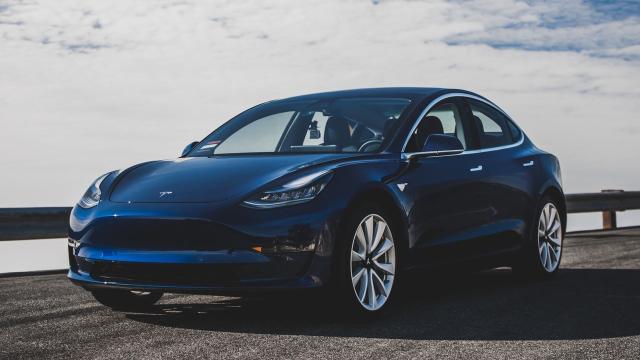When it comes to electric vehicles, Australia’s policies are at best piss-poor and at worst an embarrassment to in front of our international friends. But instead of, you know, doing something about the severe lack of incentives to actually buy an EV, politicians have spent the first quarter of 2021 simply debating the best way to slap a tax on them.
There’s no debating that electric cars will eventually need to be taxed. That’s a given. But considering there are zero federal incentives to buy a car in the first place, it seems a little counterintuitive to start placing hefty taxes on EV owners already.
But now we’ve had our third senior minister, NSW Planning Minister Rob Stokes, offer his thoughts on how best to handle the situation and his response was, uhh, something.
While ministers are debating when and how to tax electric vehicles, Stokes simply thinks we should be focussing on transitioning away from private cars altogether.
“Although [electric vehicles] are powered by more efficient and sustainable power sources, they are still cars. Painting them green does not change that reality,” Stokes said.
Now, I don’t entirely disagree that we should be moving towards more communal methods of transportation. But when so many Australians are making cross-country trips through the middle of nowhere without so much as one bar of mobile phone reception, its easier said than done.
[related_content first=”1684695″]
Sure, it would be great if we could hop on a bullet train that took you from Adelaide to Darwin, but considering anyone who lives outside of a major city has nothing more than a bus when it comes to public transport, it feels like a bit of a pipe dream.
Interestingly, Stokes’ perspective isn’t so much about the environmental impact of private transport, and more about our “enslavement” to cars.
“They still perpetuate physical inactivity and propagate sedentary lifestyles. Of course, private vehicles are wonderful servants, but they make terrible masters,” he said. “Changing from a polluting master to a more efficient master does not alter our growing dependence on, some might say enslavement to, private motor vehicles.”
[related_content first=”1680754″]
Stokes put it down to the state government to influence people’s decision-making when it comes to vehicles, asserting that providing a more robust public transport system and more bike/walking-friendly areas would reduce our dependence on cars.
“While electric vehicles are certainly more efficient than existing vehicles, using vehicles less is even better,” he said.
Although this is a perfectly fine point to make, it’s an entirely different issue than the one at hand right now.
The issue we’re currently facing is the threat of becoming the laughing stock of the world if we continue to fall so far behind our neighbours when it comes to electric vehicle uptake in Australia.
Meanwhile, NSW Transport Minister Andrew Constance has offered some actually helpful suggestions such as subsidising car parks, waiving stamp duty, or even purchasing a fleet of EVs for government officials in order to boost the secondhand electric car market in the coming years.
“We’ve got to be able to make it easier for people to crack this market and it’s not just high-end luxury cars,” Constance said.
“We’ve also got to look at ways in which we make it easier for those who run fleets. It wouldn’t matter if it’s the taxi industry, rental cars, share cars, we’ve got to be able to look at those opportunities.”
As it currently stands, just 0.66 per cent of new car sales in NSW are electric, with the national figure being slightly higher at 0.75 per cent, according to the Electric Vehicle Council.
And despite the topic of electric vehicle taxes seemingly ending up in the news every day of the week, Australians are still being priced out of the market for more sustainable vehicles.
